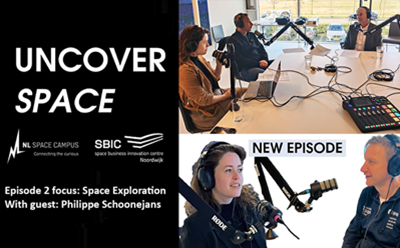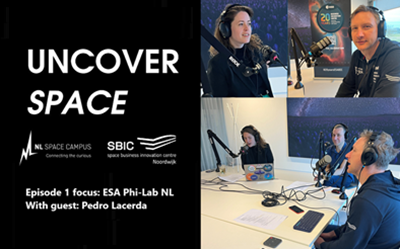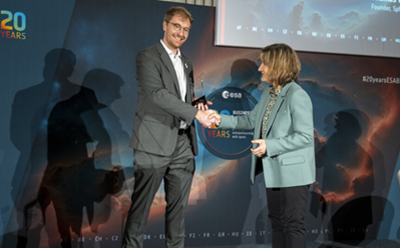SBIC Noordwijk has organized quite a number of space-related hackathons, such as the NASA Space Apps Challenge and ActInSpace, but we also like to attend and help out at other hackathons and entrepreneurial events.
In the first week of May, SBIC’s community manager Martijn acted as a jury member to GEOSS Hack, an event organized by the Group on Earth Observations (GEO). The event took place on site at ESA facilities ESRIN in Italy and ECSAT in the UK, but was also open to online participants.
We spoke to Mateusz Krainski and Matej Poliacek from team #ToDo, both young graduate trainees at ESA ESTEC. Together with their colleagues Csaba Jeger, Patryk Mikulski and Marcel Stefko, they joined GEOSS Hack remotely from the Netherlands, and won both the feasibility/sustainability award and the usability award.
Congratulations on your award. Tell us about the challenge you picked.
Matej: “We selected a challenge by Airbus: find a way to get people to classify images of clouds – pixel by pixel. This information is used to train an AI for weather prediction. Right now, images from Sentinel-2 are being classified by hand, but this is difficult and boring.”
Mateusz: “We created a game called Cloud Eater. The player has to fly a small plane and spray paint onto the clouds. Players are then compared against other players, so that a consensus is reached on which pixels contain clouds and which don’t.”
Even though you only worked on it for 30 hours, the game looks very nice, which is probably why you won the usability award. What was your team process?
Mateusz: “Well, for starters, we slept at home! We booked a room at ESTEC, drank a lot of coffee, but we didn’t work through the night. This way, you don’t turn into a zombie monster by the end of the event. I think it is good to have a break, be able to take a step back and to tidy up your work.”
Matej: “We also split the work very efficiently. Normally, at hackathons, when people get tired, they don’t work together very well. But our communication was very good. This allowed us to focus on usability and the stability of the game. We published the source code on GitHub, and we wanted to make sure that the code is easy to use for other developers.”
Are you planning to keep working on this topic?
Matej: “We might further develop Cloud Eater into a web game. I like the idea of using a game as a basis to provide input for AI.”
Mateusz: “Also, players are generally very smart, they come up with great ideas. I like to bridge the gap between fun and work.”
You can learn more about GEOSS Hack, and read an interview with the overall winning team here.


